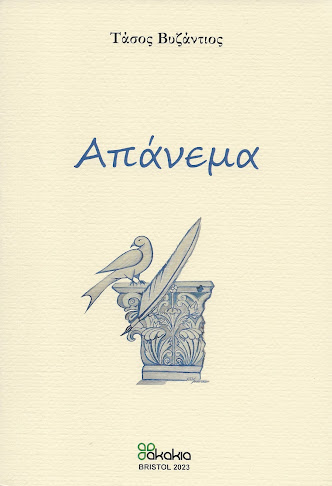Ο Οργανισμός London Hellenic Society και ο Ilya Haritakis παρουσιάζουν σήμερα το βράδυ στις 7.30 μ.μ., στο Ελληνικό Κέντρο Λονδίνου (Hellenic Centre, 16-18 Paddington Street, Marylebone, London W1U 5AS), μια ενδιαφέρουσα εκδήλωση, η οποία θα είναι αφιερωμένη στο «Ιατρικό εκστρατευτικό επιτελείο του Μεγ. Αλεξάνδρου» (Alexander’s expeditionary Medical Corps 334–323 BC). Ομιλητής θα είναι ο Δρ. Σπύρος Ρέτσας.

Σύμφωνα με την σχετική ανακοίνωση: «The tradition of physicians and surgeons participating in Hellenic military expeditions goes back to the siege of Troy. Machaon the surgeon and Podaleirios the physician, both sons of Asclepius, are important characters in the Homeric epic. The central hero of the Iliad, Achilles, was skilled in the treatment of wounds and was trained in the art of healing by the mythical Centaur. The young Alexander was an avid reader of the Iliad and an admirer of Achilles, whom he tried to emulate and surpass in military deeds.
Plutarch, in his Parallel Lives, informs us of Alexander’s love of the art of healing ‘in my opinion Alexander’s love of the art of healing -φιλιατρείν- was inculcated in him by Aristotle pre-eminently. For he was not only fond of the theory of medicine but actually came to the aid of his friends when they were sick and prescribed for them certain treatments and dietary regimens, as one can gather from his letters’.
Alexander chose the most skilled physicians to join the Medical Corps of his expeditionary force when he crossed the Hellespont in the spring of 334 BC and engaged the superior force of the Persian Great King, Darius III.
This talk addresses the numerous battle injuries sustained by Alexander the Great during the Asian expedition. The illnesses that afflicted him – including the alleged and now disputed epileptic attack that he suffered in Cilicia in 333 BC, and the Physicians named by ancient authors who cared for him and his troops; lastly, Alexander’s final illness in Babylon that claimed him at the age 33, on 10 June 323 BC».

Σύμφωνα με την σχετική ανακοίνωση: «The tradition of physicians and surgeons participating in Hellenic military expeditions goes back to the siege of Troy. Machaon the surgeon and Podaleirios the physician, both sons of Asclepius, are important characters in the Homeric epic. The central hero of the Iliad, Achilles, was skilled in the treatment of wounds and was trained in the art of healing by the mythical Centaur. The young Alexander was an avid reader of the Iliad and an admirer of Achilles, whom he tried to emulate and surpass in military deeds.
Plutarch, in his Parallel Lives, informs us of Alexander’s love of the art of healing ‘in my opinion Alexander’s love of the art of healing -φιλιατρείν- was inculcated in him by Aristotle pre-eminently. For he was not only fond of the theory of medicine but actually came to the aid of his friends when they were sick and prescribed for them certain treatments and dietary regimens, as one can gather from his letters’.
Alexander chose the most skilled physicians to join the Medical Corps of his expeditionary force when he crossed the Hellespont in the spring of 334 BC and engaged the superior force of the Persian Great King, Darius III.
This talk addresses the numerous battle injuries sustained by Alexander the Great during the Asian expedition. The illnesses that afflicted him – including the alleged and now disputed epileptic attack that he suffered in Cilicia in 333 BC, and the Physicians named by ancient authors who cared for him and his troops; lastly, Alexander’s final illness in Babylon that claimed him at the age 33, on 10 June 323 BC».








































.png)

2 comments:
Πολύ ενδιαφέρον..όμως το ως πέθανε θα μάθουμε όταν και αν βρεθεί ο τάφος του..!
@ demetrifs,
Σωστός!
Θα είναι όντως μεγάλη ανακάλυψη, αν υπάρχει ακόμα ο τάφος και δεν έχει καταστραφεί στο διάβα των αιώνων!
Post a Comment